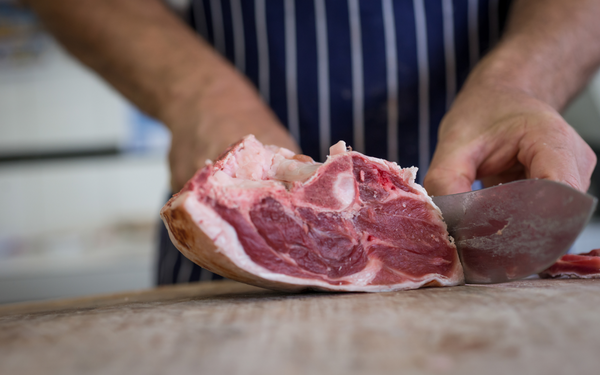Berlin-based food tech startup Project Eaden claims to have figured out how to make plant-based meat replacements in the form of complete cuts using their own patented fibre spinning technique.
Similarly, investors agree, having added €2.1 million (about $2.3 million) to a previous seed investment to help Project Eaden speed up the release of its first product, a plant-based steak, this year.
Project Eaden was established in early 2022 by materials scientist David Schmelzeisen, inventor of mymuesli Hubertus Bessau, and ex-Zalando manager Jan Wilmking.
According to Schmelzeisen’s explanation to TechCrunch, the pre-revenue company’s technology is based on bio fibres, the fundamental components of most animals and plants and an essential part of the production of meat cuts.
Edible plant-based protein fibres are created in Project Eaden that have the look and feel of animal foods and are comparable to those used in the textile, aerospace, and automotive sectors. The fibres start off thin, like thread, then progressively are built upon and twisted around spools and fed into a machine that bundles the fibre together into the completed product.
Schmelzeisen claims this sort of technology provides a better-tasting product that appears and functions like conventional meat; for example, it is juicy.
“Texture is a big deal,” he said. We develop fibres that include many materials, simulating the resistance to biting and chewing that one experiences while eating actual flesh. In a meaningful way, it helps. It is our firm conviction that we are on the precipice of a once-in-a-generation opportunity to develop something really remarkable and innovative from a technological perspective that has not been seen before.
U.S. officials are still establishing how the alternative protein sector will be branded and controlled. Meanwhile, with scalability and cost being some of the largest barriers to popular production of alternative proteins, Schmelzeisen thinks the fibre technique is more scalable and can be utilised beyond conventional meat, like chicken, swine and cattle, but also to manufacture fish and shellfish. In addition, it is less economical than other techniques of creating alternative proteins, such extrusion, which removes moisture to generate a “lump” of plant-based protein that can be moulded into different meat-like items.
There are only a select few businesses like Project Eaden that are successfully using fibre spinning technologies and garnering venture money. Tender, originally known as Boston Meats, has been using its fibre technology to develop plant-based and cell-cultivated proteins since March of last year, when it received $12 million.
In December, a fresh round of funding was closed thanks to the efforts of Creandum, Magnetic, and Atlantic Food Labs. So far, Project Eaden has raised a total of €10.1 million (about $10.8 million), and this seed extension brings that total to little over €10.1 million.
Last June, Creandum led another group of investors, including Atlantic Food Labs, Shio Capital, Trellis Road, and a collection of angel investors that included the former managing director of Rügenwalder Mühle, Godo Röben, in raising €8 million.
“Eating beef is related with excessive land and water consumption and unsustainable levels of greenhouse gas emissions,” Carl Fritjofsson, general partner at Creandum, said in a statement.
“But, for most people, it’s simply too much of a pleasure to give up on. Until today, existing plant-based options haven’t solved this dilemma, as they lack compelling taste, texture and look despite higher prices. Project Eaden has the potential to become the industry’s game changer.”
The bulk of the investment will go towards technical development, including building up Project Eaden’s R&D and food grade materials teams and teaming with culinary professionals that will premiere the product once it is ready. Additionally, the business is remodelling a production area so that it can create its own product at scale, Wilmking said in an interview.
A subsequent round of finance will hasten the facility development, Schmelzeisen stated. The firm has established a laboratory and will start making prototypes shortly; they want to launch their product to the public by the year’s end.
Schmelzeisen stated that the company’s long-term goal is to transition from prototype manufacturing to highly automated production, and then maybe into more facilities and/or collaborations.

Subtly charming pop culture geek. Amateur analyst. Freelance tv buff. Coffee lover
